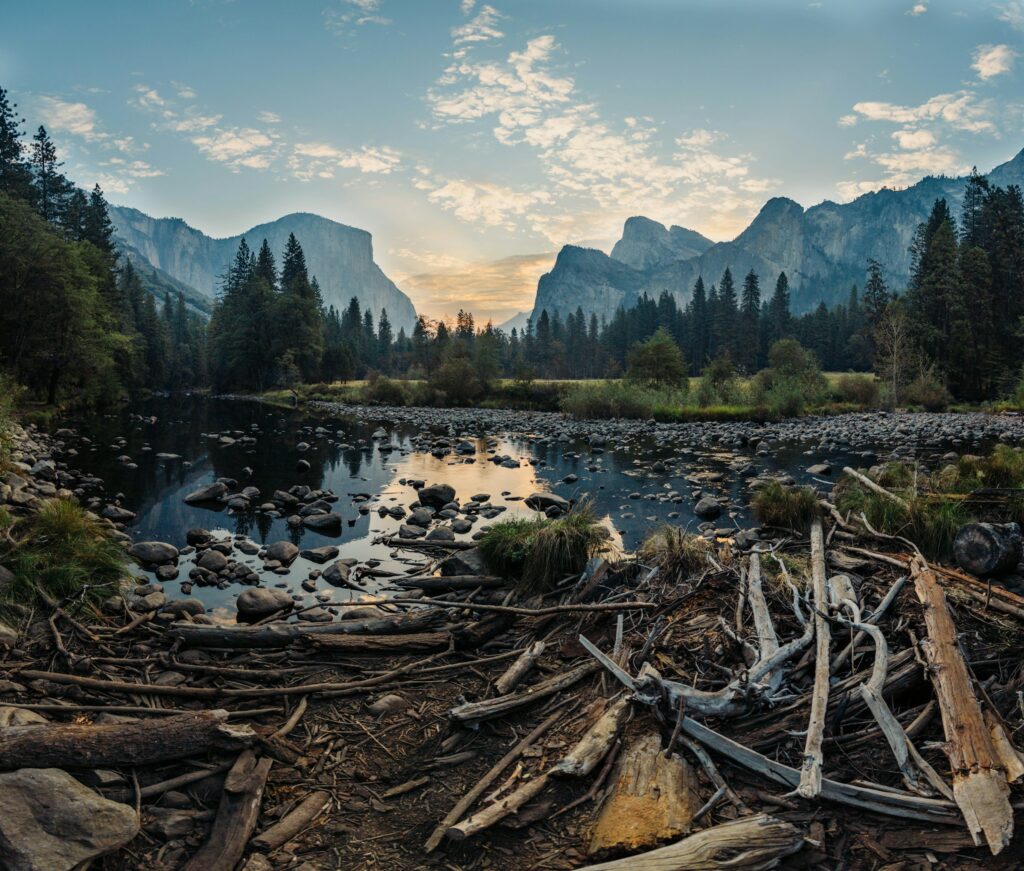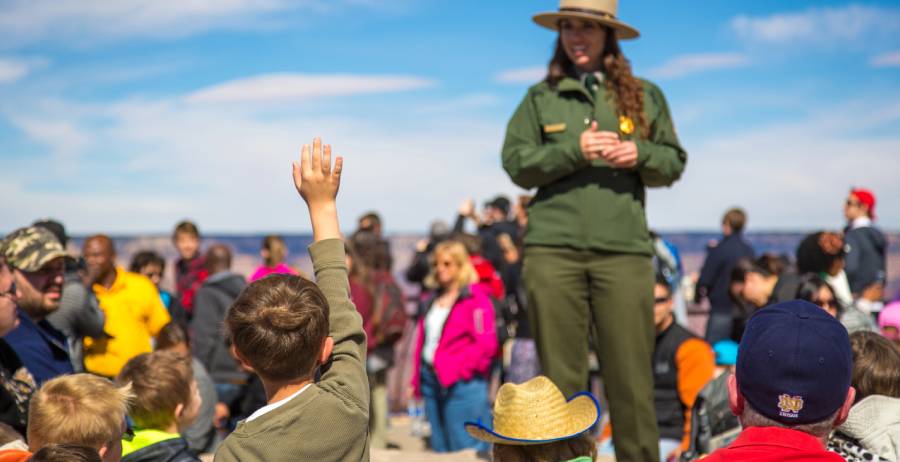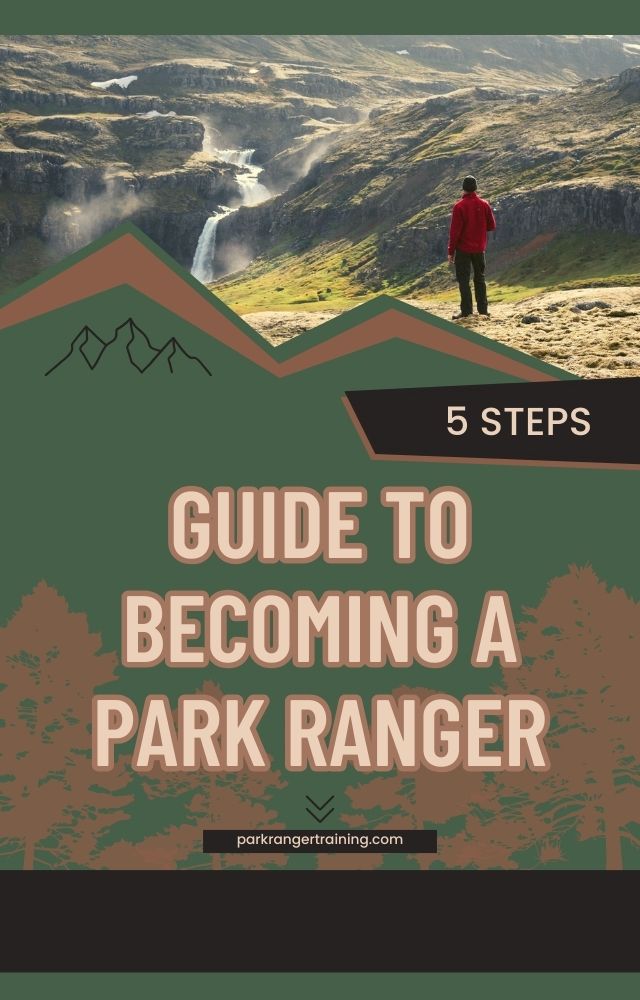When considering a career as a park ranger, one frequently asked question is whether park rangers live within the state or national parks they serve. Indeed, some park rangers live in park housing, especially those in remote locations like backcountry rangers in Denali National Park or those tasked with educating the public in Grand Canyon National Park. National Park Service rangers, as well as state park rangers and forest rangers, often have the opportunity to reside on park property, which can vary significantly from park to park.
Introduction to Park Ranger Life
Life as a “park ranger” is more than just a job; it’s a commitment to preserving the natural beauty of federal parks and national recreation areas. Park housing plays a significant role in a ranger’s life, offering a unique living experience deeply intertwined with their roles and responsibilities. Whether patrolling park grounds, engaging in manual labor, or providing public safety, the park ranger’s day starts and ends in the heart of the park they protect.
A Glimpse into the Daily Responsibilities
On a daily basis, park rangers engage in a variety of tasks, from routine patrols to emergency response. They may conduct law enforcement training, participate in search and rescue operations, or manage crowd control during peak visitor seasons. Educating the public about conservation, park history, and safety is also a key component of their daily responsibilities. In addition, rangers collaborate with organizations like the Student Conservation Association to provide volunteer opportunities and foster a deeper appreciation for nature.
The Diverse Roles of Park Rangers
Park rangers typically wear many hats, from environmental stewards to educators and law enforcers. Some specialize as game wardens or park police, focusing on the enforcement of regulations and public safety, while others, like national park service rangers, may focus on conserving park resources and educating visitors. Seasonal ranger positions often attract seasonal employees who perform various roles but may not reside in the park year-round.

The Reality of Park Ranger Habitation
While many park rangers live on-site in provided park housing, the reality is that living arrangements can vary widely depending on the role and location of the park.
Housing Options for Park Rangers
Park rangers may be provided with various housing options ranging from apartments, cabins, to shared residences. These accommodations are typically located within the park or nearby, allowing for quick access to park operations and emergencies. Housing provisions can differ greatly, with some parks offering modern amenities, while others offer more rustic living conditions, especially in remote areas where park rangers typically serve as both public servants and custodians of the natural environment.
The Benefits and Challenges of Living On-Site
Living on-site offers park rangers the unique advantage of being closely connected to their work environment, fostering a deep sense of community and purpose. However, residing within the park also brings challenges, such as isolation, limited access to urban conveniences, and the need to be constantly available for emergencies. Yet, for many rangers, the benefits of living in some of the most beautiful places on earth far outweigh the drawbacks.
Park Ranger Career Path and Development
Pursuing a career as a park ranger is often highly competitive, with many aspiring to secure management positions within parks and recreation. Seasonal workers may use these opportunities as stepping stones to full-time employment and career development.
Educational Pathways for Aspiring Rangers
Prospective rangers often follow educational pathways in environmental science, wildlife management, or related fields. Additional training requirements, such as law enforcement training or certifications in public safety, can also be integral to a ranger’s education.
Skills That Benefit Park Rangers
Effective park rangers possess a diverse skill set, including expertise in natural resource management, customer service, and the ability to handle manual labor. These skills ensure that park operations run smoothly and that visitors have a safe and enjoyable experience.

Employment Outlook for Park Rangers
The Bureau of Labor Statistics Occupational Outlook for park rangers projects job growth in line with the average annual rate for all occupations, indicating a stable future for those in the field.
Competitive Nature of Park Ranger Positions
Park ranger positions are frequently competitive, with many applicants vying for a limited number of roles. This competition is often due to the attractive nature of the work and the opportunity to contribute to the preservation of state and national parks.
Salary Expectations and Job Security
The average salary for a park ranger can vary depending on factors such as location, experience, and the specific park agency. According to the Office of Personnel Management, park ranger salary ranges are competitive with other public service positions, with job security being relatively high due to the ongoing need for park preservation and public education.
Opportunities Beyond the Park
For rangers seeking career growth, opportunities extend beyond the traditional park setting, with paths leading to roles as park superintendents or positions within the broader field of conservation.
Alternative Conservation Careers
Those interested in conservation careers may also consider roles as park naturalists, park managers, or engaging in the hiring process for positions that contribute to the stewardship of park property and natural resources.
Continuing Education and Degree Programs
Interpretive park rangers, especially in Florida State, often benefit from ongoing education to enhance their knowledge and skills. Degree programs in environmental science, wildlife management, and ecology are popular choices, providing the expertise needed to educate park visitors and manage resources effectively.
How to Enter the Field of Park Rangers
Starting a career as a park ranger requires a blend of education, physical fitness, and a passion for the outdoors. An understanding of park management and environmental conservation is essential.
Steps to Becoming a Park Ranger
Prospective park rangers often start by obtaining a degree in a field like park management or environmental science. State agencies and national parks, like Yellowstone National Park, look for candidates who have completed relevant internships or volunteer work. A rigorous background investigation and medical exam are standard parts of the hiring process. These steps help ensure the safety and well-being of both the ranger and the park visitors they will serve.
Applying for Park Ranger Positions
When you’re ready to apply, the hiring process for park ranger positions typically includes federal or state applications, written tests, and interviews. Being well-prepared and persistent is key.

The National Parks Experience
As a ranger for the National Park Service, you’ll be responsible for preserving the natural beauty and historical significance of some of the most iconic landscapes in the country. You’ll engage with park visitors, ensuring they have a safe and enjoyable experience.
The Role of Park Rangers in National Parks
Law enforcement rangers are critical in national parks, tasked with protecting visitors, natural resources, and wildlife, ensuring park rules and regulations are followed.
Living Quarters and Facilities in National Parks
Rangers and staff often live within the parks they serve, which fosters a deep connection with the natural environment and the community they protect.
Types of Accommodations Provided
Seasonal park rangers and full-time staff may be provided with housing options ranging from shared quarters to single-family homes, depending on location and availability. These accommodations allow rangers to be close to their work areas and fully immerse themselves in the park environment.
Adjusting to Life in Remote Locations
Rangers assigned to remote locations, like Capitol Reef National Park, may face unique challenges such as limited access to amenities and isolation, but also enjoy unique opportunities to connect with nature.
Seasonal Work and Off-Season Duties
Seasonal work in parks often adjusts with the influx of park visitors, leading to varied duties throughout the year. Off-season tasks may include maintenance, planning, and training for the upcoming season.
What Park Rangers Do During the Winter
During the winter, park rangers may shift focus from guided tours and visitor services to resource management and park law enforcement. This season is often used for training, conservation projects, and preparing for the busier months ahead.
Year-Round vs. Seasonal Employment
Year-round rangers enjoy steady employment, while seasonal rangers must often adapt to changes in work availability and may pursue other opportunities or continue education during the off-season.
The Community Aspect of Park Ranger Life
Being a park ranger involves becoming a part of a close-knit community, where collaboration with fellow rangers, staff, and volunteers is crucial for the effective management and preservation of parklands.
Interaction with Visitors and Staff
Rangers engage regularly with park visitors and staff, sharing their love for the wilderness while educating and inspiring others to appreciate and conserve the natural world.
Conclusion: Do Park Rangers Live in the Park
Choosing to become a park ranger is more than a career choice; it’s a commitment to preserving the natural and cultural history that defines our parks and wilderness areas. Park employees are the stewards of the United States’ most precious landscapes, embodying the spirit of conservation that the Department of the Interior upholds. For those who find their calling in this line of work, the rewards extend far beyond the boundaries of any single park. They become part of a legacy that protects and celebrates the natural world for future generations.





